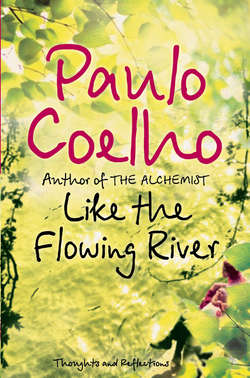Читать книгу Like the Flowing River: Thoughts and Reflections - Пауло Коэльо - Страница 11
The Importance of a Degree
ОглавлениеMy old mill, in a small village in France, has a line of trees that separates it from the farm next door. The other day, my neighbour came to see me. He must be about seventy years old. I’ve sometimes seen him and his wife working in the fields, and thought that it was high time they stopped.
My neighbour is a very pleasant man, but he says that the leaves from my trees are falling on his roof and that I should cut the trees down.
I’m really shocked. How can a person who has spent his entire life in contact with Nature want me to destroy something that has taken so long to grow, simply because, in ten years’ time, it might cause problems with his roof?
I invite him in for a coffee. I say that I’ll take full responsibility, and that if, one day, those leaves (which will, anyway, be swept away by the wind and by the summer) do cause any damage, I’ll pay for him to have a new roof. My neighbour says that that doesn’t interest him; he wants me to cut down those trees. I get slightly angry and say that I would rather buy his farm from him.
‘My land isn’t for sale,’ he says.
‘But with that money you could buy a lovely house in town and live out the rest of your days there with your wife, without having to put up with harsh winters and failed harvests.’
‘My farm is not for sale. I was born here and grew up here, and I’m too old to move.’
He suggests that we get an expert from town to come and assess the situation and make a decision – that way, neither of us need get angry with the other. We are, after all, neighbours.
When he leaves, my first reaction is to label him as insensitive and lacking in respect for Mother Earth. Then I feel intrigued: why would he not agree to sell his land? And before the day is over, I realize that it is because his life has only one story, and my neighbour does not want to change that story. Going to live in the town would mean plunging into an unknown world with different values, and maybe he thinks he’s too old to learn.
Is this something peculiar to my neighbour? No. I think it happens to everyone. Sometimes, we are so attached to our way of life that we turn down a wonderful opportunity simply because we don’t know what to do with it. In his case, his farm and his village are the only places he knows, and there is no point in taking any risks. In the case of people who live in the town, they all believe that they must have a university degree, get married, have children, make sure that their children get a degree too, and so on and so on. No one asks themselves: ‘Could I do something different?’
I remember that my barber worked day and night so that his daughter could finish her sociology degree. She finally graduated and, after knocking on many doors, found work as a secretary at a cement works. Yet my barber still used to say very proudly: ‘My daughter’s got a degree.’
Most of my friends, and most of my friends’ children, also have degrees. That doesn’t mean that they’ve managed to find the kind of work they wanted. Not at all. They went to university because someone, at a time when universities were important, said that, in order to rise in the world, you had to have a degree. And thus the world was deprived of some excellent gardeners, bakers, antique dealers, sculptors, and writers. Perhaps this is the moment to review the situation. Doctors, engineers, scientists, and lawyers need to go to university, but does everyone? I’ll let these lines by Robert Frost provide the answer:
Two roads diverged in a wood, and I –
I took the one less traveled by,
And that has made all the difference.
Just to conclude the story about my neighbour. The expert came and, to my surprise, showed us a French law which states that any tree has to be at least three metres from another property. Mine are only two metres away, and so I will have to cut them down.
